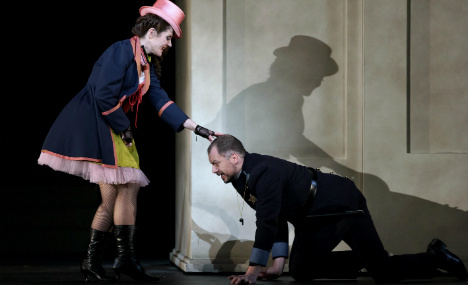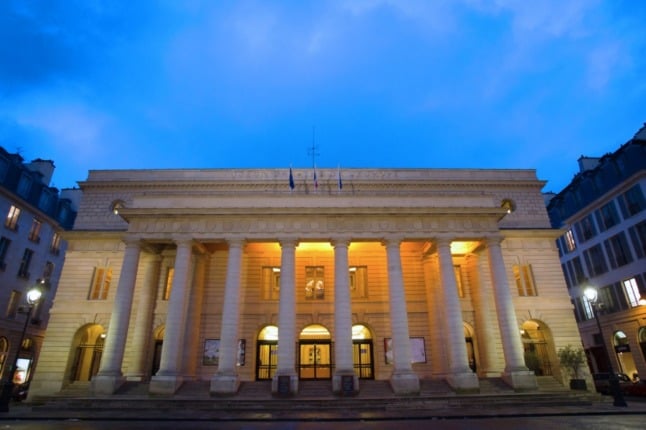“The Ban on Love” was only performed once in Wagner’s lifetime, at the beginning of his career when his reputation was not yet solid enough to withstand the outcry sparked by a work controversial for its innuendo and poking fun at hypocritical officialdom.
Yet this work alone of its contemporaries has stood the test of time, and its theme of German rulers trying to bring order to supposedly louche southern Europe resonates to this day in the wake of the eurozone crisis.
The new production premieres this weekend at Madrid's Teatro Real before moving on to the Royal Opera House in Covent Garden.
“It’s a fantastic comedy and a good story. So many of the operas of this time, sister spiritual works if you like, have no strong story to convincingly communicate to today’s public. The story of this is really engaging,” the Real’s music director, Ivor Bolton, said in a press conference ahead of the dress rehersal.
Based on Shakespeare’s “Measure for Measure”, and known in German as “Liebesverbot”, the opera begins with tyrannical governor Friedrich banning the annual Carnival in Palermo, as well as any public displays of affection or drunknenness, on pain of death.

Photo: Javier del Real / Teatro Real
The players appear in period costume, in keeping with 1834 when the opera was written, but proceed to use latter day social networks to protest over the ban and secretly arrange trysts, while the grand finale takes a cheeky look at contemporary European politics.
Royal Opera House stage director Kirsten Holten was in Madrid for the dress rehearsal, because the “Ban on Love” play is a joint production by the ROH, the Teatro Real and the Teatro Colón in Buenos Aires.
“It is unusual for one of our co-productions to be premiered elsewhere,” Holten said, noting that the opera is also unusual for opening with a jolly Siciliana overture which sounds more like Donizetti than the mature Wagner of “The Ring”.
“Essentially he writes an operetta. It has spoken dialogue, it has the fun, it has the secondary kind of fun characters, it has the real drama of the love story. It’s so not what you expect, yet he’s in there.”
The Opera also gives the lie, Holten added, to those who consider Wagner to be stern, authoritarian and self-centred, the one much beloved and taken over by German nationalists.
“He made the hypocritical killjoy, the villain of the piece, a German. He makes fun of German puritanism, of German insistence on certain values, he makes fun of Germany. Now that I think is not what you would expect from the Wagner you later see as an exponent of German nationalism,” Holten said.

Photo: Javier del Real / Teatro Real
Starring British baritone Christopher Maltman as villainous governor Friedrich and German soprano Manuela Uhl as the novice nun Mariana, “Ban on Love” will run in Madrid from February 19th to March 5th.
It is expected to feature in the 2016/17 season in Covent Garden.
By Martin Roberts



 Please whitelist us to continue reading.
Please whitelist us to continue reading.
Member comments